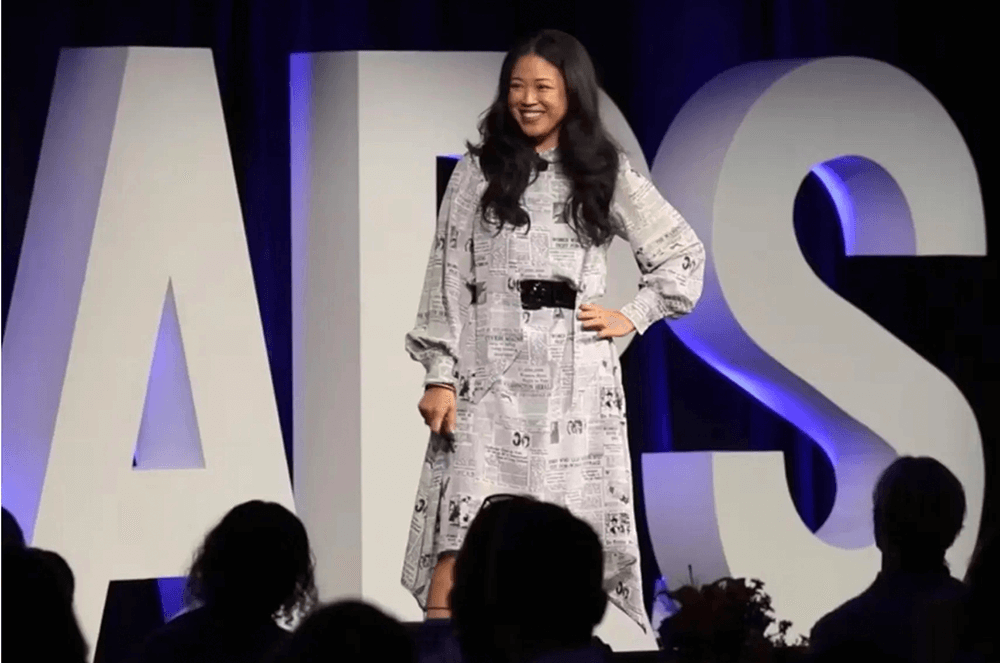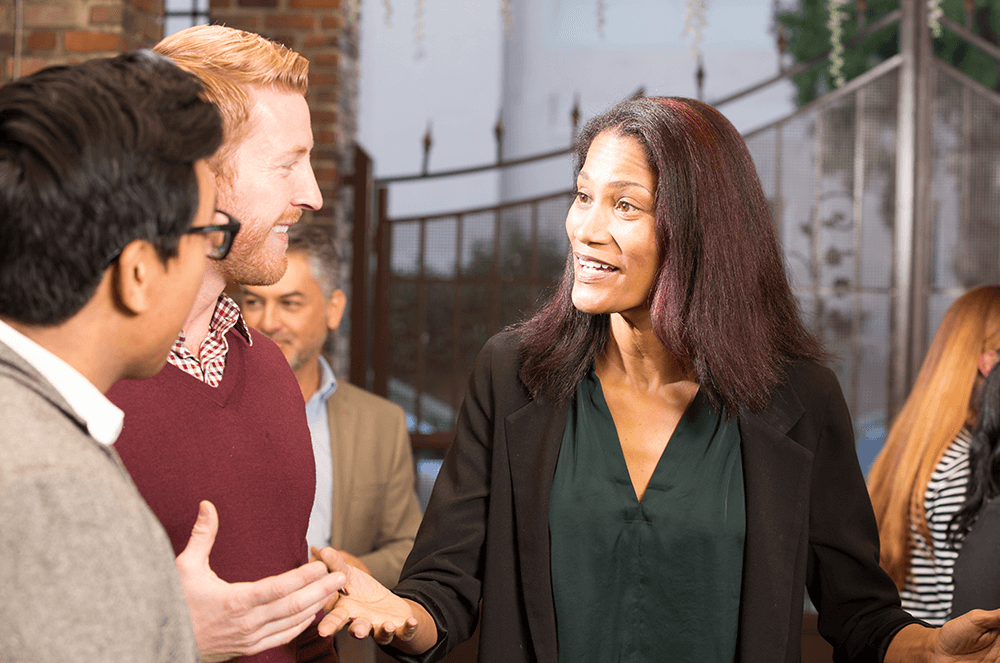
All you public speakers out there, imagine yourself in Matt Abrahams’ shoes. When he was 14, that is.
He was competing in a Northern California public speaking competition for high school students. Heeding his teacher’s advice to always start with an attention-grabber, Abrahams opened his speech about the martial arts by executing a spirited karate kick.
A little too spirited, apparently. He split his pants wide open.
Abrahams cringes during a recent video interview as he recalls standing there, mortified and with absolutely no idea what to do next. Fortunately, a quick-thinking teacher took off the sweater she was wearing over her shirt and tossed it to the teen. He wrapped the
sweater—a fluorescent pink—around his waist, covering what needed to be covered. And carried on with his speech.
Not only did he persevere past that painful moment, but the judges awarded him first place in his category (Expository Speaking). “I think they felt sorry for me,” he says, laughing.
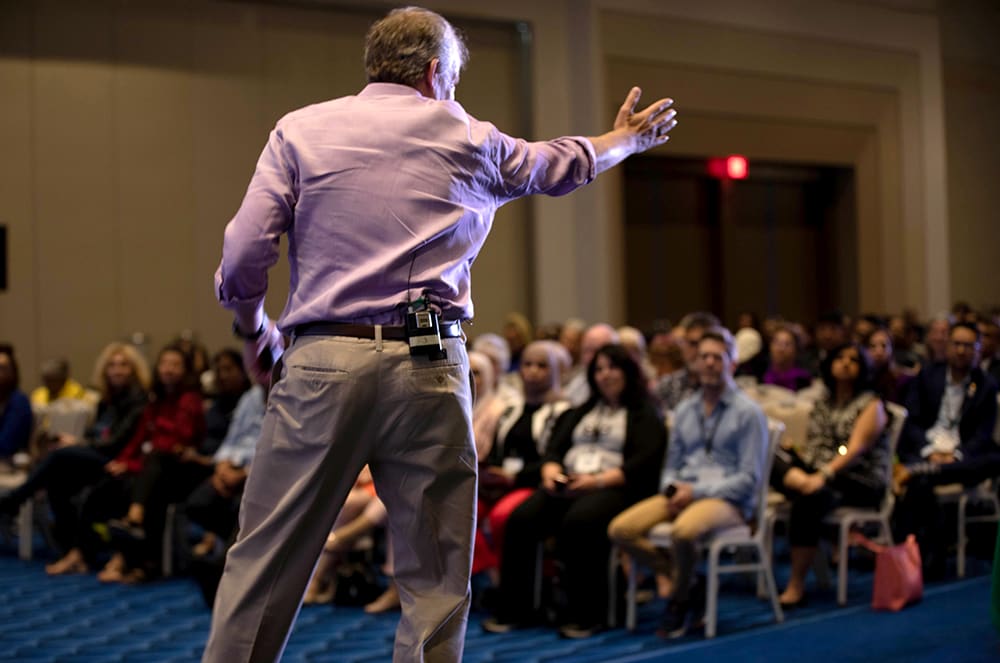
From such colorful beginnings are distinguished careers in communication born. Today Abrahams is a lecturer in organizational behavior at the Stanford University Graduate School of Business, the author of two books on public speaking and communication, and the host of an internationally popular podcast, Think Fast, Talk Smart.
The affable Abrahams has been named Toastmasters’ 2025 Golden Gavel recipient. As the organization’s most prestigious honor, the award is presented annually to an individual who distinguishes themself in the fields of communication and leadership.
The author of Speaking Up Without Freaking Out, Abrahams says he’s a fervent advocate of Toastmasters and regularly promotes its benefits. He’s a former member himself. Abrahams is scheduled to deliver his Golden Gavel presentation August 22 at the 2025 International Convention in Philadelphia, Pennsylvania.
Man on the Move
Besides the classes he teaches at Stanford’s graduate business school and his writing and podcasting, the father of two is also a keynote speaker, communications consultant, and speaking coach. His clients have delivered TED Talks, spoken at the World Economic Forum, and presented to investors at business road shows.
Though he works across varied platforms, Abrahams says he draws on strategies common to all communication.
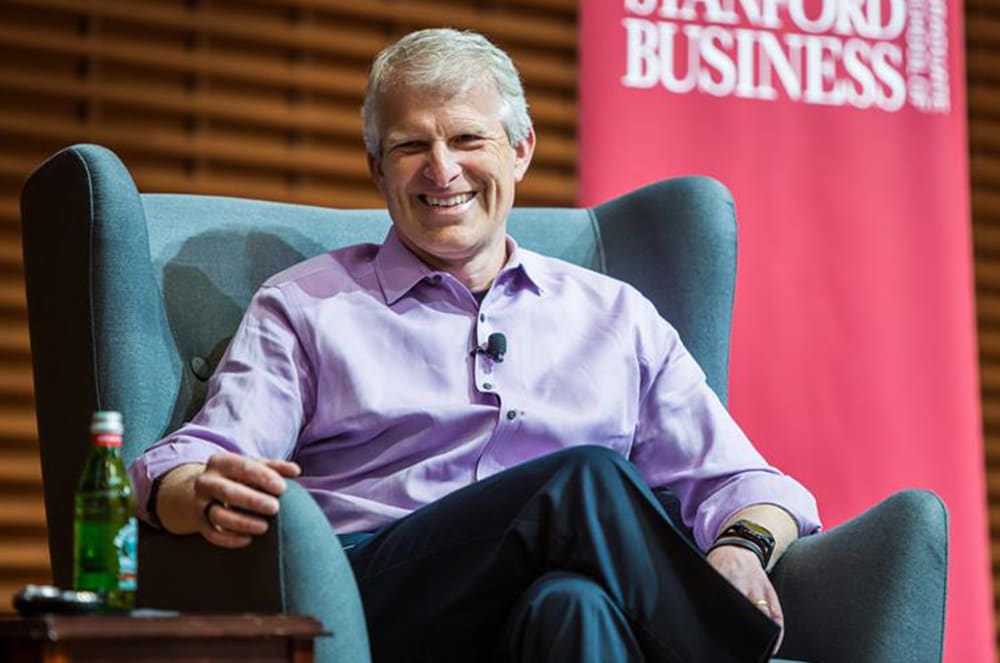
“Audience first—it’s about them, it’s not about you,” he states. “You need structure. You can’t just randomly list random ideas. You need to listen deeply and understand, be present.”
He continues, “When I’m a podcast host, I get to do a lot of inquiry and paraphrasing. When I’m a teacher, I get to think about what’s the best way for people to learn and practice these skills. … So you have to adjust and adapt. There is no one way to communicate. But it’s predicated on these foundational principles.”
His interest in communication started young. Abrahams’ father was a lawyer and later a judge, and his mother taught English to non-native-speaking adults. Watching them, he says, he learned that words, and how you express them, matter.
“If you think about it, the vast majority of our communication is spontaneous.”
—Matt AbrahamsHe attended Stanford and has now taught at the university for more than 20 years, 15 of them being at the graduate business school, where he teaches on topics such as strategic communications and presenting online. He also teaches a workshop for Stanford’s new Master of Business Administration (MBA) students that emphasizes spontaneous speaking.
“If you think about it, the vast majority of our communication is spontaneous,” says Abrahams, whose most recent book, published in September 2023, is Think Faster, Talk Smarter: How to Speak Successfully When You’re Put on the Spot.
Before teaching, he held leadership positions at several software companies (and belonged to the I’m Feeling Chatty Toastmasters Club at Google’s headquarters in Mountain View, California, for four years).

Listen to to hear more from Matt Abrahams.
Communication in the Classroom
In his graduate classes, Abrahams provides an academic framework for improving communication skills, along with opportunities for students to practice what they learn—for example, in communications-related scenarios in the business world.
“I find that with my students, as with many of the Toastmasters I know, learning the ‘why’ behind the ‘what’ is really important,” he says. “It’s not just ‘go do this.’ It’s ‘here’s why it’s important.’ So that’s where we blend the theory with the practice.
“But their intent is to get better. I mean, the students realize that communication is critical to success in business.”
Shawon Jackson is Abrahams’ co-instructor in the class “Essentials of Strategic Communication,” taken mostly by students pursuing their MBA. He describes his colleague as a dynamic communicator who is also approachable.
“Of all the wonderful qualities I admire about Matt, perhaps what I appreciate most is his ability to weave in humor into his talks, helping him connect with our students in a more authentic way,” Jackson says.
To learn more about Matt Abrahams, visit .
Chubing Li took the strategic communications class as a master’s student and afterward did independent research under Abrahams’ guidance, with a focus on inclusivity in storytelling. She says her mentor’s communication techniques benefited her greatly, especially as an international student navigating culturally diverse environments.
“Whether drafting a proposal, engaging with colleagues, or speaking to an audience, I rely on the foundational principles Matt taught: clarity, empathy, and intentionality,” says Li.
The Pleasures of Podcasting
Abrahams, who has written tips-filled articles for the Toastmaster magazine over the years, has been pleasantly surprised by the success of the , which he hosts and produces. He started it in 2020 when the Stanford Graduate School of Business wanted to experiment with its first-ever podcast. (The school sponsored the show for its first five years.)
Abrahams says he loves its international reach. According to him, the podcast is in 95 countries, including the United States, the United Kingdom, India, China, Mexico, and Brazil, and has close to 3 million listeners around the world. (“I think they should all be Toastmasters members,” he quips.)
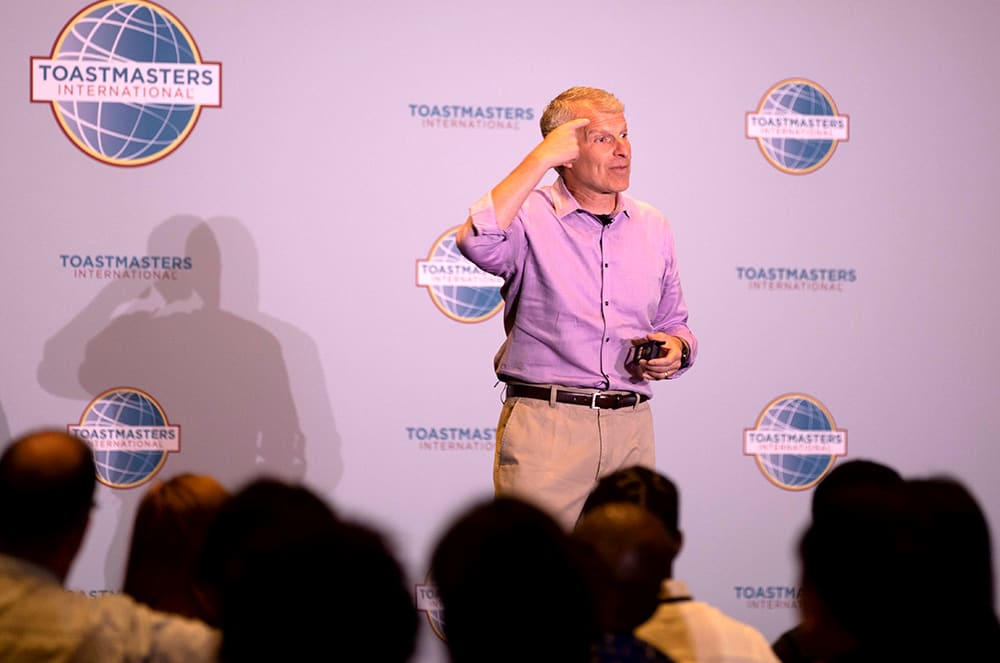
On the program, he interviews experts in the communication field. Last year it won a Webby Award (the Webbys recognize top online content) for . On that episode, Abrahams interviewed author and CEO coach Kim Scott on the power of feedback and “radical candor.”
“It’s a pleasure to interview experts and learn from them,” he says. “It’s fun to come up with questions that help unlock things.”
Job Fulfillment
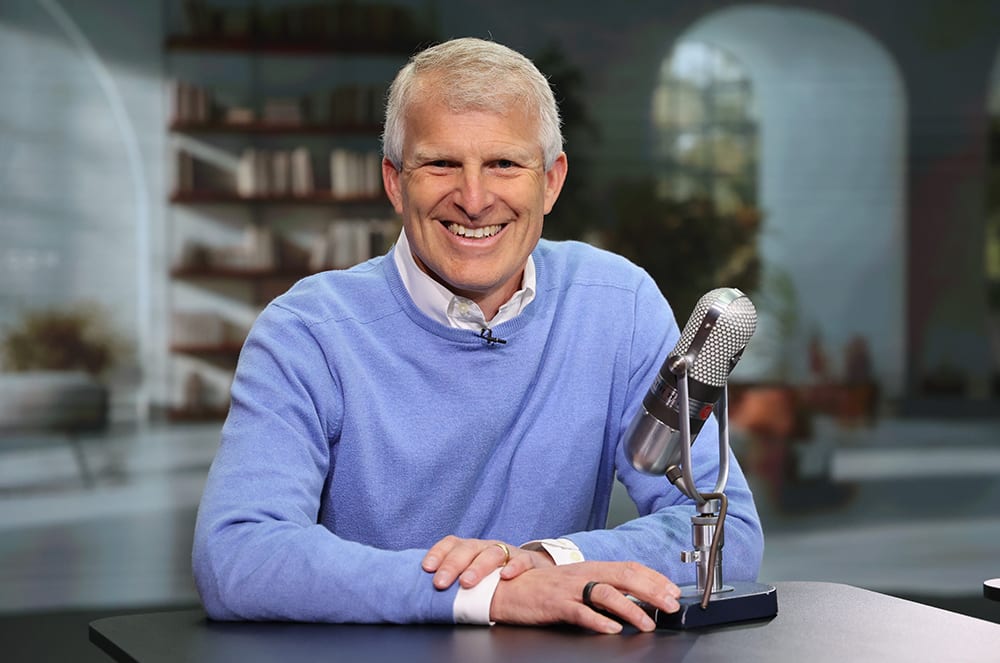
Abrahams says his work is deeply rewarding, from coaching speakers to create better presentations, to helping students become savvy communicators, to providing communication insights to podcast listeners.
The common thread is helping people speak and communicate with more confidence.
“I firmly believe that we, as a society, are better off when we hear multiple voices, and if somebody has anxiety that restricts their voice, then—I don’t take credit, but I certainly take pleasure in seeing people get better, and I am so fortunate to be able to help them.”
He says he sometimes receives letters from podcast listeners telling him about their successes or thanking him for helping them learn and improve.
“It feels really good.”
Share this article
Paul Sterman is senior editor, executive and editorial content, for 51³Ô¹Ï. Reach him at psterman@toastmasters.org.

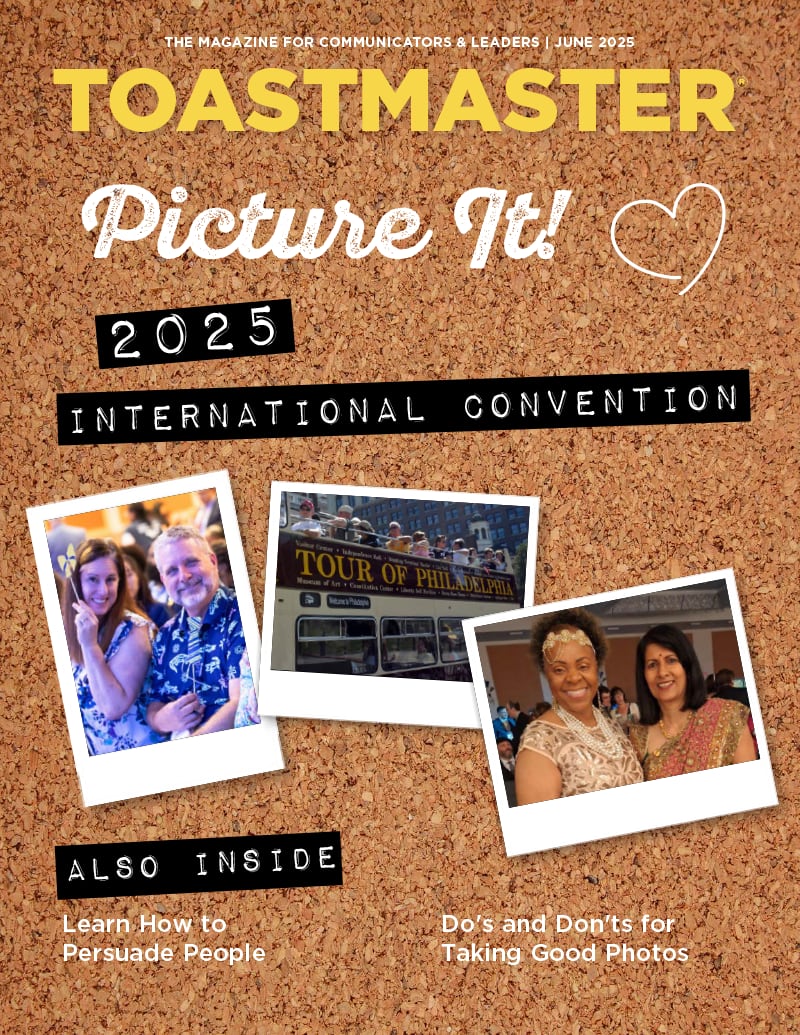

 Previous
Previous


 Previous Article
Previous Article
